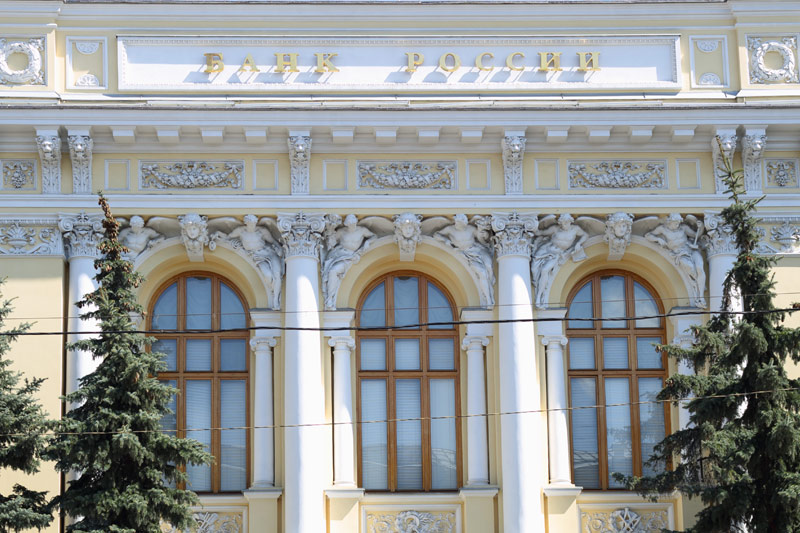By Clara Denina
LIMA (Reuters) - Russia's central bank has been forced to step up its gold buying this year to absorb domestic production that Western sanctions are making it hard for miners to sell abroad, and to boost liquidity in its foreign reserves, sources said.
Most Russian gold mine production is sold to domestic commercial banks, such as Sberbank or VTB, which can then sell the metal on to either the central bank or to foreign banks.
This year, sources say, foreign banks are holding off buying Russian gold after Western powers implemented sanctions against the country over the Ukraine crisis.
The central bank has therefore had no choice but take domestic mine production that cannot be sold to foreign banks, two sources said, and has bought most of the metal that commercial banks had available.
"This is one measure that the central bank has taken to go through this difficult period for commercial banks and most importantly to boost liquidity," a source close to the situation said on the sidelines of the London Bullion Market Association annual conference in Peru.
While the sanctions do not expressly prohibit them from buying gold, Western banks are cautious over any business done with their Russian counterparts, sources said.
"So, it is likely that we could see a period of stabilisation, when the question around sanctions is resolved, as the central bank will stop adding more gold to its reserves," a second source added.
Russia has stepped up its gold buying significantly this year, data from the World Gold Council showed, adding nearly 115 tonnes of gold to its reserves in the year to date, against 77.5 tonnes in the whole of 2013 and 75 tonnes in 2012.
Central banks bought gold heavily during the financial crisis that followed the collapse of Lehman Brothers in a bid to diversify their currency reserves, adding 1,800 tonnes to their holdings in the six years to June 2014.
The Russian central bank has been the most active official sector gold buyer over the last decade. Its holdings have nearly tripled since the end of 2004 to 1,149.8 tonnes, making it the world's sixth largest gold holder among central banks.
Earlier this month, CBR's First Deputy Governor Ksenia Yudayeva said that the bank could use gold from its reserves to pay for imports, if needed.
"Central banks do not accumulate gold for no reason; you hold gold as part of your reserves to guard against these worst case scenarios," Natixis analyst Nic Brown said.
"It would make sense that in a situation in which the Russians found their dollar reserves were no longer useful, for whatever reason, they would want to use alternatives, and the country has accumulated a large amount of gold in recent years."
(Additional reporting by Jan Harvey in London; editing by Veronica Brown and Philippa Fletcher)
